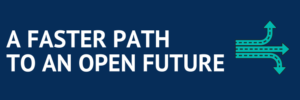PLAN S: Where Is It Now?
Just when journal publishers were beginning to really wrap their heads around how to remain viable with all the variations of Open Access in journal publishing, a new plan came into town.
PLAN S is the brainchild of Robert-Jan Smits, former Open Access Envoy of the European Commission, and Marc Schiltz, President of Science Europe. The initiative was born from the cooperation among the major public funders of research in Europe with significant input from the Scientific Council of the European Research Council. Unveiled on September 4, 2018, by cOALition S, a consortium of initially 11 European research funders (see https://www.coalition-s.org/funders/ for the full list of national funders, charitable foundations, and European funders), Plan S is a set of principles designed to advance the cause of Open Access.
Described on the cOALition S website (https://www.coalition-s.org) by the EU Ministers of Science and Innovation, the key statement of greatest concern to publishers reads: “…driven by our duty of care for the proper functioning of the science system, we have developed Plan S whereby research funders will mandate that access to research publications that are generated through research grants that they allocate, must be fully and immediately open and cannot be monetised in any way.”
Initially set to take effect in 2020, this primary principle requires that authors funded by coalition members make their research available for free immediately upon publication. The challenge to publishers is how to accommodate such a mandate in hybrid and subscription-based journals.
After receiving feedback from all corners of the research and publishing community, revised principles and implementation guidance were released in late May 2019 pushing the start date into 2021.
As of this posting, the coalition is being led by its interim coordinator, Robert Kiley, Head of Open Research at Wellcome Trust.
The Initial Release of Plan S
Open-Access Plan in Europe Bans Publishing in Paywalled Journals: https://www.the-scientist.com/news-opinion/open-access-plan-in-europe-bans-publishing-in-paywalled-journals-64748

As reported in a September 4, 2018, Nature article: “The initiative is spearheaded by Robert-Jan Smits, the European Commission’s special envoy on open access. (The ‘S’ in Plan S can stand for ‘science, speed, solution, shock’, he says).”
Initial reactions from all types of publishers fell squarely in the category of shock.
Radical open-access plan could spell end to journal subscriptions: https://www.nature.com/articles/d41586-018-06178-7?utm_source=briefing-dy&utm_medium=email&utm_campaign=briefing&utm_content=20181105
European funders seek to end reign of paywalled journals: https://science.sciencemag.org/content/361/6406/957?_ga=2.112031044.1916309108.1559509957-27009446.1555623694
The above article in Science is not Open Access. The Summary provided on the article page, however, gives a very complete overview of the key aspects of the initial Plan S as described in early September 2018.
“Frustrated with the slow transition toward open access (OA) in scientific publishing, 11 national funding organizations in Europe turned up the pressure this week. As of 2020, the informal group will require every paper resulting from research funded by its members to be freely available from the moment of publication. They will no longer allow the 6- or 12-month delays that many subscription journals now require and will ban publication in so-called hybrid journals. The move means that grantees from these funders will have to forgo publishing in thousands of journals, including some high-profile ones. OA advocates applaud the bold step, but traditional publishers are not pleased.”
From Principles to Implementation: cOAlition S Releases Implementation Guidance on Plan S: https://www.coalition-s.org/implementation-guidance-on-plan-s-now-open-for-public-feedback/
 Europe’s Plan S aims for expansion to US and beyond: https://www.timeshighereducation.com/news/europes-plan-s-aims-expansion-us-and-beyond
Europe’s Plan S aims for expansion to US and beyond: https://www.timeshighereducation.com/news/europes-plan-s-aims-expansion-us-and-beyond
Since September of last year, commercial publishers and scholarly societies have been developing responses in order to make their attitudes known toward whichever “S” you might choose to describe this newest European concept about how to distribute the results of research.
 Scientific societies worry Plan S will make them shutter journals, slash services: https://www.sciencemag.org/news/2019/01/scientific-societies-worry-plan-s-will-make-them-shutter-journals-slash-services
Scientific societies worry Plan S will make them shutter journals, slash services: https://www.sciencemag.org/news/2019/01/scientific-societies-worry-plan-s-will-make-them-shutter-journals-slash-services

In a May blog article (also posted on LinkedIn), Steven Inchcoombe, Chief Publishing Officer at Springer Nature, set forth “A faster path to an open future” with an accompanying infographic. Inchcoombe describes a way to progress the concept of Plan S without crippling the publishing industry in the process. He suggests that “[t]o make it easy to recognise compliance with this standard, those meeting the criteria could be called a Transformative Publisher. The full proposed requirements of this standard can be found here: https://resource-cms.springernature.com/springer-cms/rest/v1/content/16705468/data/v2.
“Essentially, a Transformative Publisher would commit to continuously increase the average level of OA take-up across its whole fully owned journal portfolio, at least at the rate of research funding bodies, institutions and consortia.”
Where Are We Now?
Radical open-access plan delayed a year as revised effort seeks more support: https://www.sciencemag.org/news/2019/05/radical-open-access-plan-delayed-year-revised-effort-seeks-more-support
Open access: Plan S launch delayed until 2021: https://www.sciencemag.org/news/2019/05/radical-open-access-plan-delayed-year-revised-effort-seeks-more-support
As noted in the two previous articles, cOAlition S heard publishers (mainly from Europe but they were joined by those in the U.S. and even a few from South America) and have made some modifications to the original concepts.
The Revised Plan S Principles and Implementation Guidance
Part I: The Plan S Principles
“With effect from 2021, all scholarly publications on the results from research funded by public or private grants provided by national, regional and international research councils and funding bodies, must be published in Open Access Journals, on Open Access Platforms, or made immediately available through Open Access Repositories without embargo.”
Part II: Guidance on the Implementation of Plan S
Plan S Compliance. All scholarly articles that result from research funded by members of cOAlition S must be openly available immediately upon publication without any embargo period.
There are three routes for being compliant with Plan S:
| Open Access publishing venues (journals or platforms) | Subscription venues (repository route) | Transition of subscription venues (transformative arrangements) | |
| Route | Authors publish in an Open Access journal or on an Open Access platform. | Authors publish in a subscription journal and make either the final published version (Version of Record (VoR)) or the Author’s Accepted Manuscript (AAM) openly available in a repository. |
Authors publish Open Access in a subscription journal under a transformative arrangement.
|
| Funding | cOAlition S funders will financially support publication fees. | cOAlition S funders will not financially support ‘hybrid’ Open Access publication fees in subscription venues. | cOAlition S funders can contribute financially to Open Access publishing under transformative arrangements. |
https://www.coalition-s.org/principles-and-implementation/
 cOAlition S Releases Revised Implementation Guidance on Plan S Following Public Feedback Exercise: http://www.stm-publishing.com/coalition-s-releases-revised-implementation-guidance-on-plan-s-following-public-feedback-exercise/
cOAlition S Releases Revised Implementation Guidance on Plan S Following Public Feedback Exercise: http://www.stm-publishing.com/coalition-s-releases-revised-implementation-guidance-on-plan-s-following-public-feedback-exercise/
*A person who indulges in and desires information gathering and interpretation. The term was introduced in 2006 by neuroscientists Irving Biederman and Edward Vessel.

Discussion